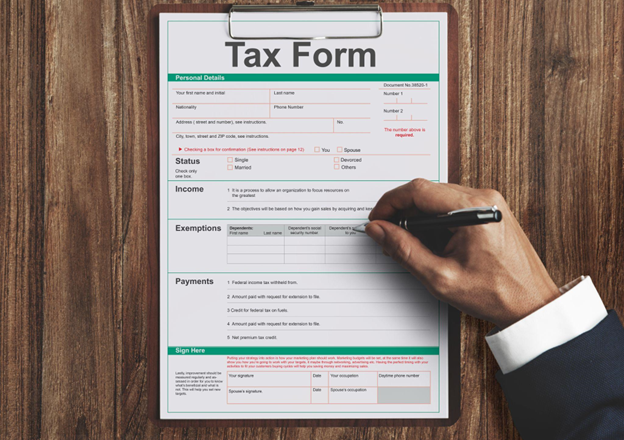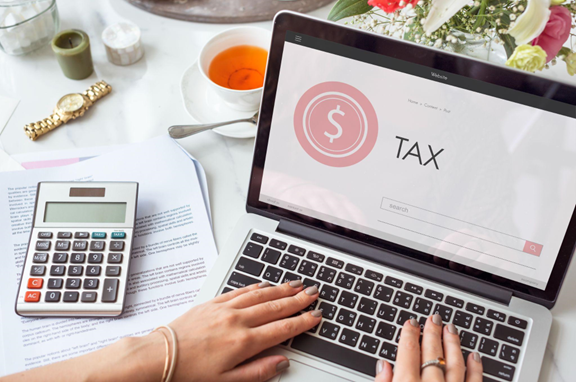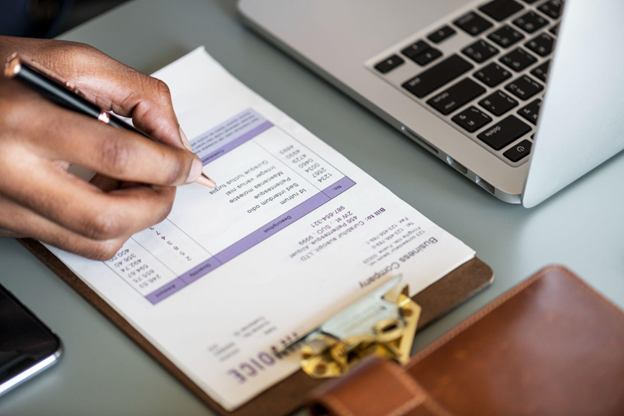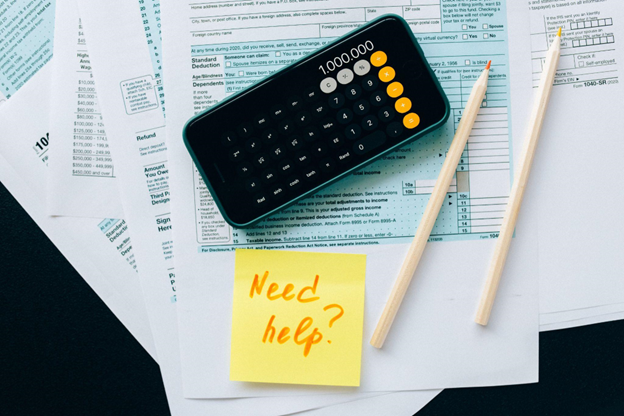Credit Tip Tuesday #65 How To Get Ready For Tax Season In Canada? An Easy-To-Understand Guide!

It’s about time to prepare for the thing you dread the most while residing in Canada- Taxes!
The tax filing season is approaching, giving you thrills and chills because you just seem to be lost on what to do.
You’re looking for the deductions, credit report, prior taxes, bills, and all the documents you might need to fill your taxes correctly.
And, as the days tick by, bringing you closer to the end of April, your anxiousness rises to new heights.
Do you find tax preparation to be a difficult task? Yes.
Would you like some extra assistance to get you through the process? Absolutely yes!
We've got you! So, here's everything you need to know about tax season in Canada:
How To Get Ready For Tax Season In Canada?  Image Credits: Freepik
Image Credits: Freepik
Mark your calendar, people, because the tax season in Canada has already started. The more you avoid the elephant in the room, the more it will haunt you in the tax closing month.
However, this tax filing season might be a bit different from all your previous ones, Covid-19 being the apparent reason.
So, is there anything that has changed in the policy? Let’s find out!
1. Keep Yourself Updated With The LawYes, your first step towards a correct tax filing is staying up to date with all the latest information.
- Give the Federal Income Tax and Benefit Guide a read on Canada’s official website
- Note if there's any new tax rule due to pandemic
- Also, look for any updated queries on the guide and prepare for every change
It’s necessary to know the modifications and transformations in the guide before you officially start your tax filing journey.
Points to ponder:
- The government of Canada provided various programs to help people fighting with the Pandemic and Covid-19. So, if you were among them, you must attach your T4A slip (proof of financial help from CRA) with the other documents
If you were among the work home employees, you could claim a tax deduction following the lost jobs, reduced salaries, etc.
2. Create a CRA Account

Image Credits: Freepik
So, the second thing you should be doing is creating a CRA account or log in back to your previous one. Although it’s not an essential step but can surely be beneficial:
- You can get easy access to your past filings (thus, helping you to fill in details for this year)
- You can also apply to get the tax refund directly into your account
- You can view your eligibility and criteria for all the income-related benefits
Moreover, it can help you track your tax process.
3. Get Your Documents Ready!You need to provide the right documents and details before the deadline for a correct tax filing.
Moreover, your complete authentic documentation can work in your favor to support your tax returns. Here’s what you need to provide:
- Personal Data: Provide SSN, DOB (Yourself and family members), details of caregiver amount (if applicable), tuition or fee transfer, installments, or payments to CRA, etc.
- Income Receipts: Prepare the specific income forms applied to you (self-employment, savings, retirement, employment, insurance, social benefits, etc.)
- Expense Slips: Ready all your payment or expense receipts (related to personal, professional, family, home, medical, study, etc.)
- Previous Tax Information: You might also need to give notice of assessment, donation slips, deduction limit, etc.
Here’s a detailed guide by Turbotax to fill you in with all the necessary details on what documents you need to get ready for the tax season in Canada.
4. Know The Dates!The last thing you want for your financial stability is a late tax filing. So, it’s important to keep all the details of the important dates:
- Tax Filing: The deadline for the tax filing for the 2021 year in Canada is April 30, 2022. However, as the day that falls on this date is a Saturday, CRA will consider your taxes on time if you manage to file before May 2, 2022.
- Tax Paying: You must pay all your due taxes before the deadline of April 30 or May 2, 2022.
If you want to ready your documentation for your tax refund or return, you must fill in the taxes within the given time. Click to read a detailed article by settlement on filing for a tax return in Canada.
Ways To File Taxes In Canada

Image Credits: Freepik
Filing directly through your CRA account is the easiest way to file your taxes in Canada.
However, this isn’t the only way to do that. Here’s a comparison of different ways you can file your taxes:
|
Comparison |
Tax Software |
Authorized Representative |
Community Tax Clinic |
|
What is it? |
It is an electronic software approved by the CRA |
You can claim an accountant, family member, or relative to file and access your taxes for you |
Tax clinic hosted by the community who volunteers to fill your taxes or guide you on the process |
|
Available for? |
Canadians |
Anyone & Everyone |
Adequate income or simple tax status holders |
|
Cost |
Might or might not be free |
Might or might not be free |
Free |
|
Processing Duration |
Usually within 14 days |
Usually within 14 days |
Usually within 14 days |
How To File Taxes In Canada?
After researching basic tax filing details and ways you can do it, now is the time to know how you can actually do it. So, here are two methods you can file taxes:
1. OnlineIf you want to keep everything easily accessible (the data you’ve entered, the forms you’ve filled, etc.) and without any human error, you can choose to file your taxes online.
However, a NETFILE software or a web application is necessary for the online method. Following things are required for online tax filing:
- Income tax data
- Date of birth
- Social Insurance Number
- NETFILE software/application
Using the data mentioned above, you can file the taxes online on the CRA website. It can be beneficial as it has quite some benefits:
- E-filing is fast, convenient, and quick
- It is a safe way of filing your taxes
- It is a surefire way of avoiding date entry errors (CRA have to re-enter information received in the form of paper)
However, there might be cases when you have to mail certain forms as the e-file format does not support them.
2. Via MailIf you don’t want to use the e-filing process, you can also opt to file your taxes by paper or the mailing method.
- Check, fill, and download the specific tax filing form
- Double-check and verify your entered details, so there’s no wrong information
Also, make sure that you manage to send in your taxes and forms on time. Reach out to the agency to verify that they have received the details successfully.
FAQ
Still got questions and queries regarding the tax filing seasons? Here are answers to some of them:
1. What if my T4A slip is incorrect? Should I submit the exact amount?You may find that your T4A slip does not accurately reflect your income. It's possible that you made a payment that isn't reflected correctly on the slip. Or an error caused to reduce the actual amount you paid on the receipt. Whatever the reason, contact the CRA immediately and inform them of the issue.
2. Will my credit score affect my tax refund?It is wise to have a good credit score in Canada. However, having bad credit will not affect your tax refund. Still, if you don’t want to take any chances, first, get a credit card to build credit and improve credit score while you prepare for the next tax season.
3. Can I get help with my taxes?Tax filing can be tiring and exhausting, but fortunately, you can find help with your taxes in Canada. You can attend Webinars or seek aid from volunteer programs. Or you can visit the official CRA website to learn about the tax filing process.
4. What does it mean to prepare for tax season in Canada?Preparing for the tax season means following these tax filing tips:
- Put together all your personal data in one place (online or offline folder)
- Decide a method and way you’ll be using for the tax filing (software/tax clinic/representative or online/by paper)
- Get your income and expense documents
- Collect the necessary documents of income adjustments
- Start viewing the deductions and credits
If you have all the details and documents ready, the tax filing season won’t feel like a bone stuck in your throat anymore.
Bottom Line
You have plenty of time to file and pay your taxes, but if you put it off, the days will slip away from you before you even realize it.
So, read this easy-to-understand guide and make sure you pay your taxes correctly and before the deadline!


